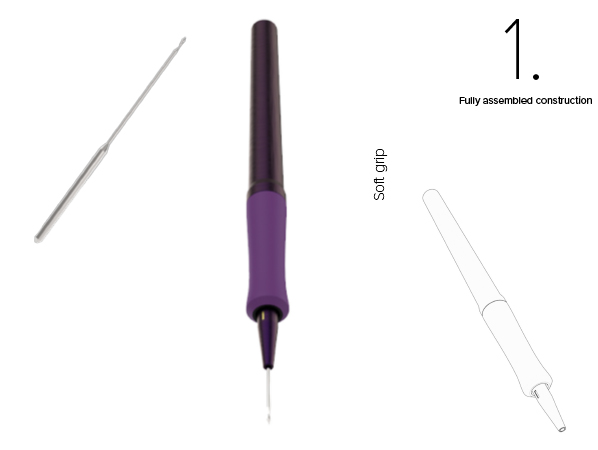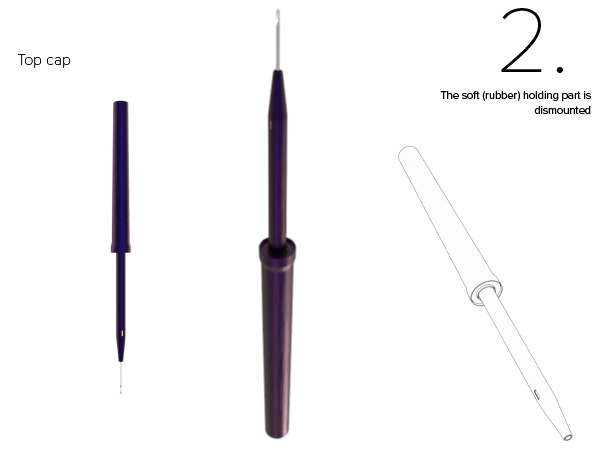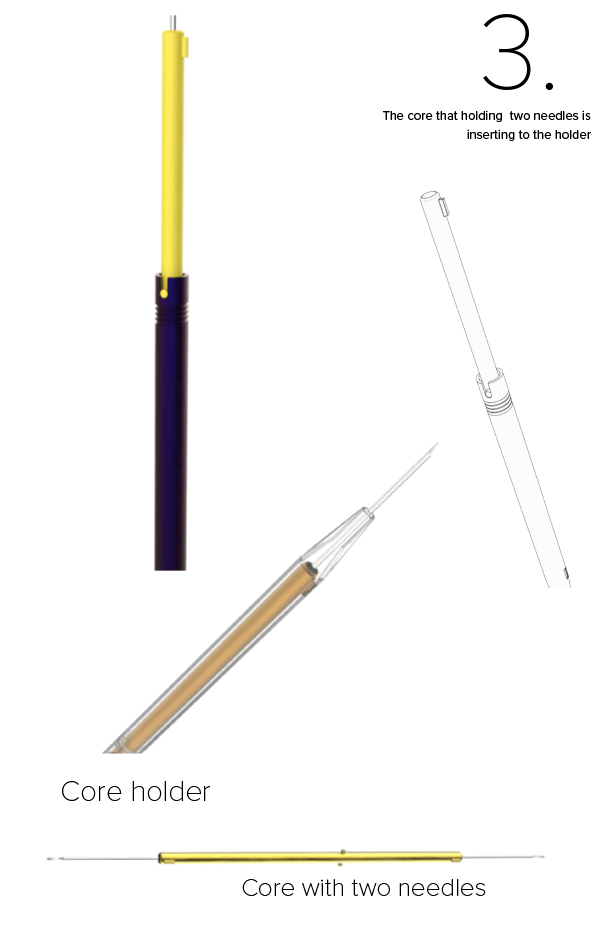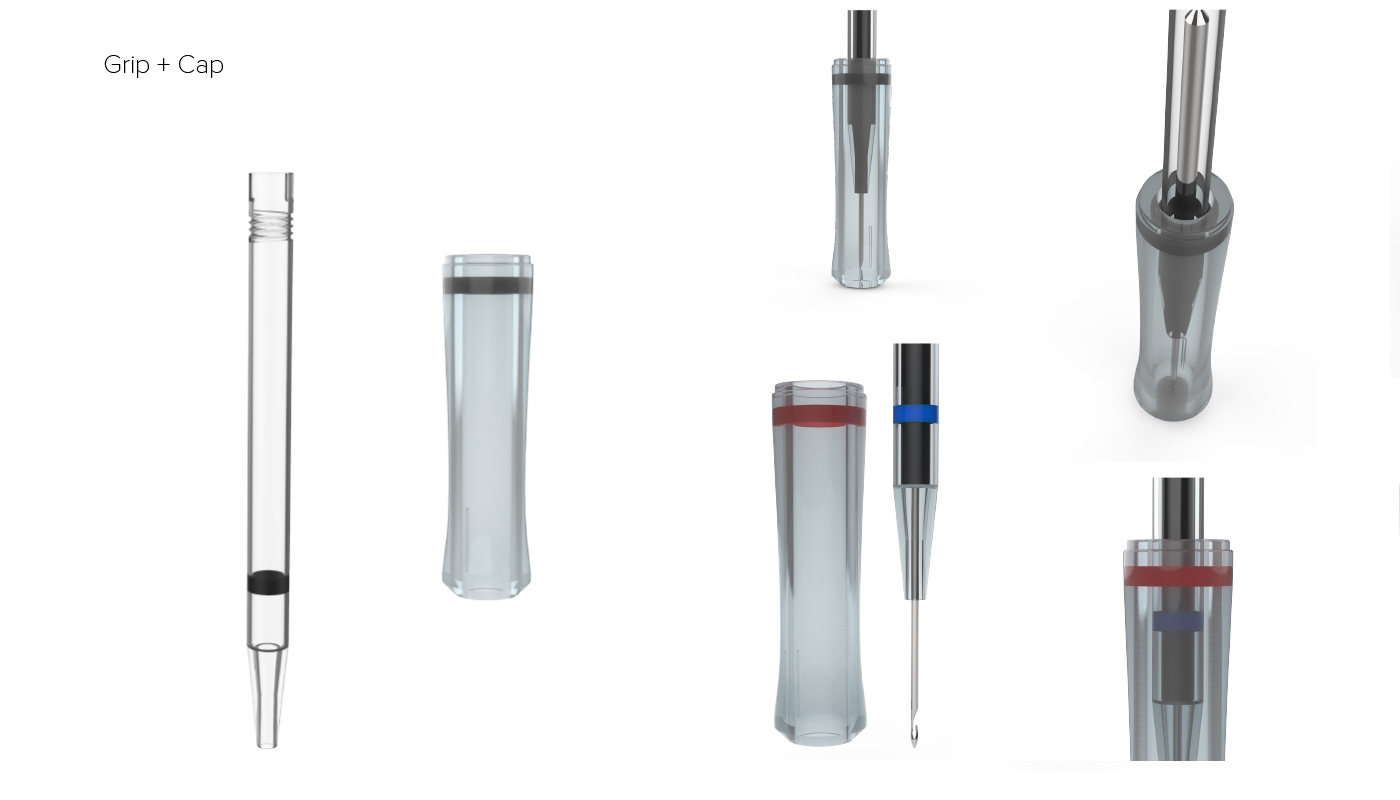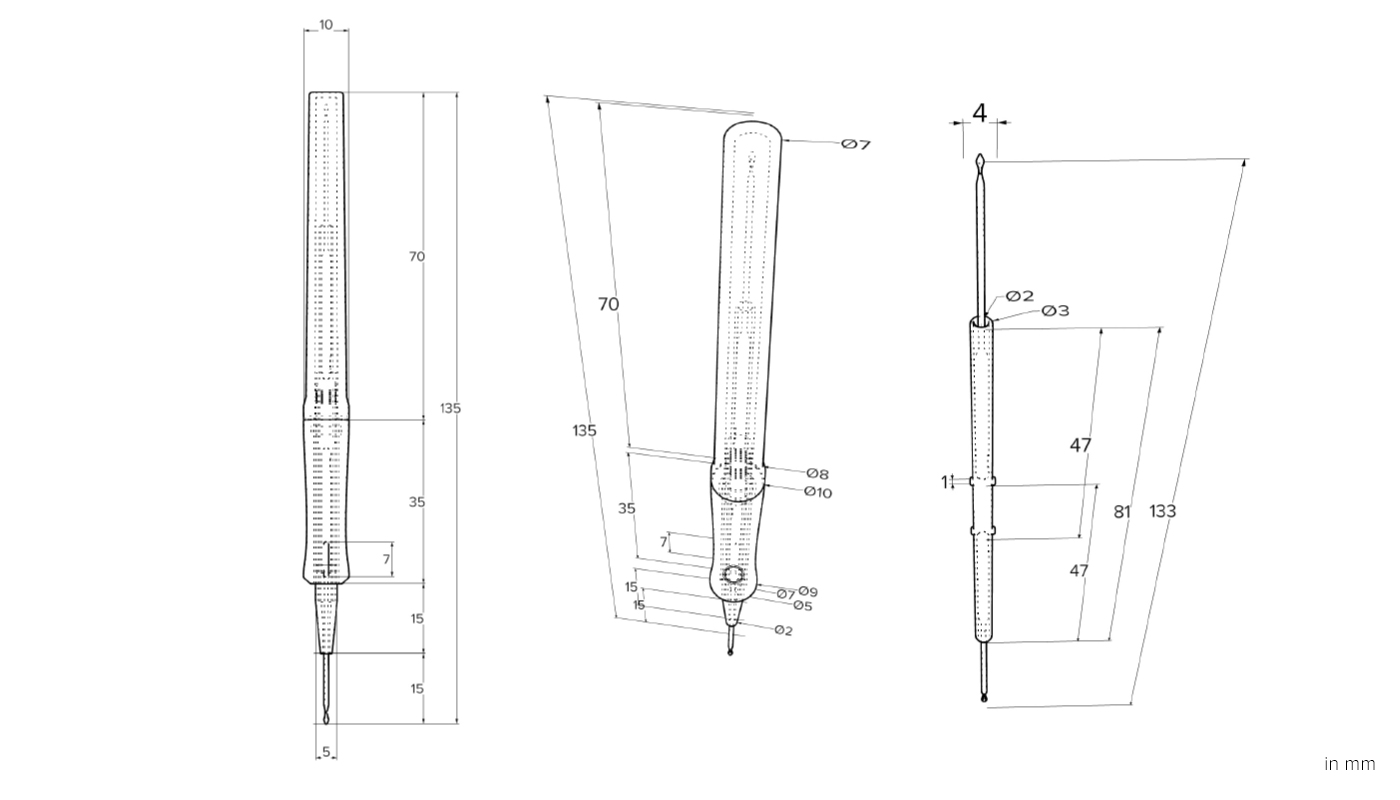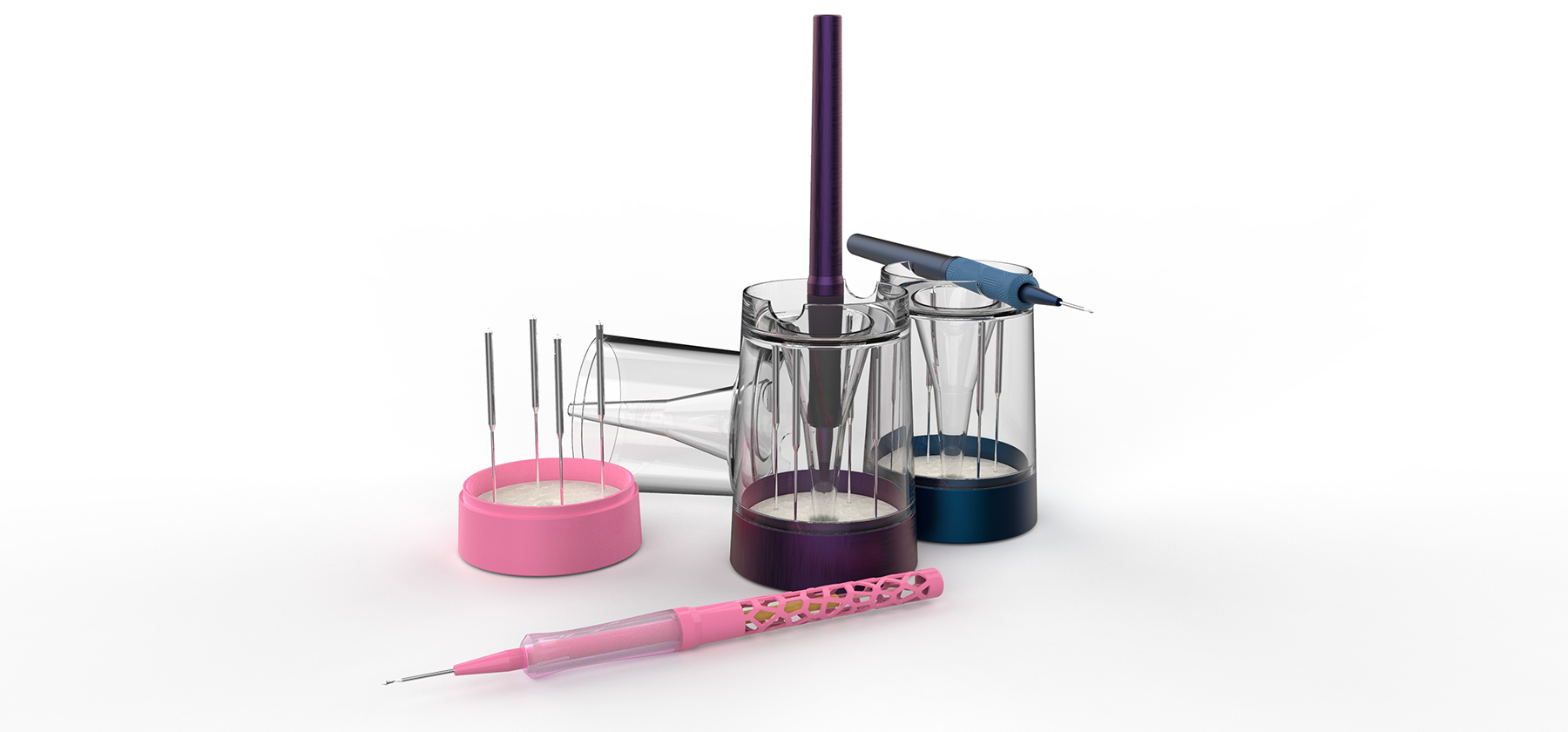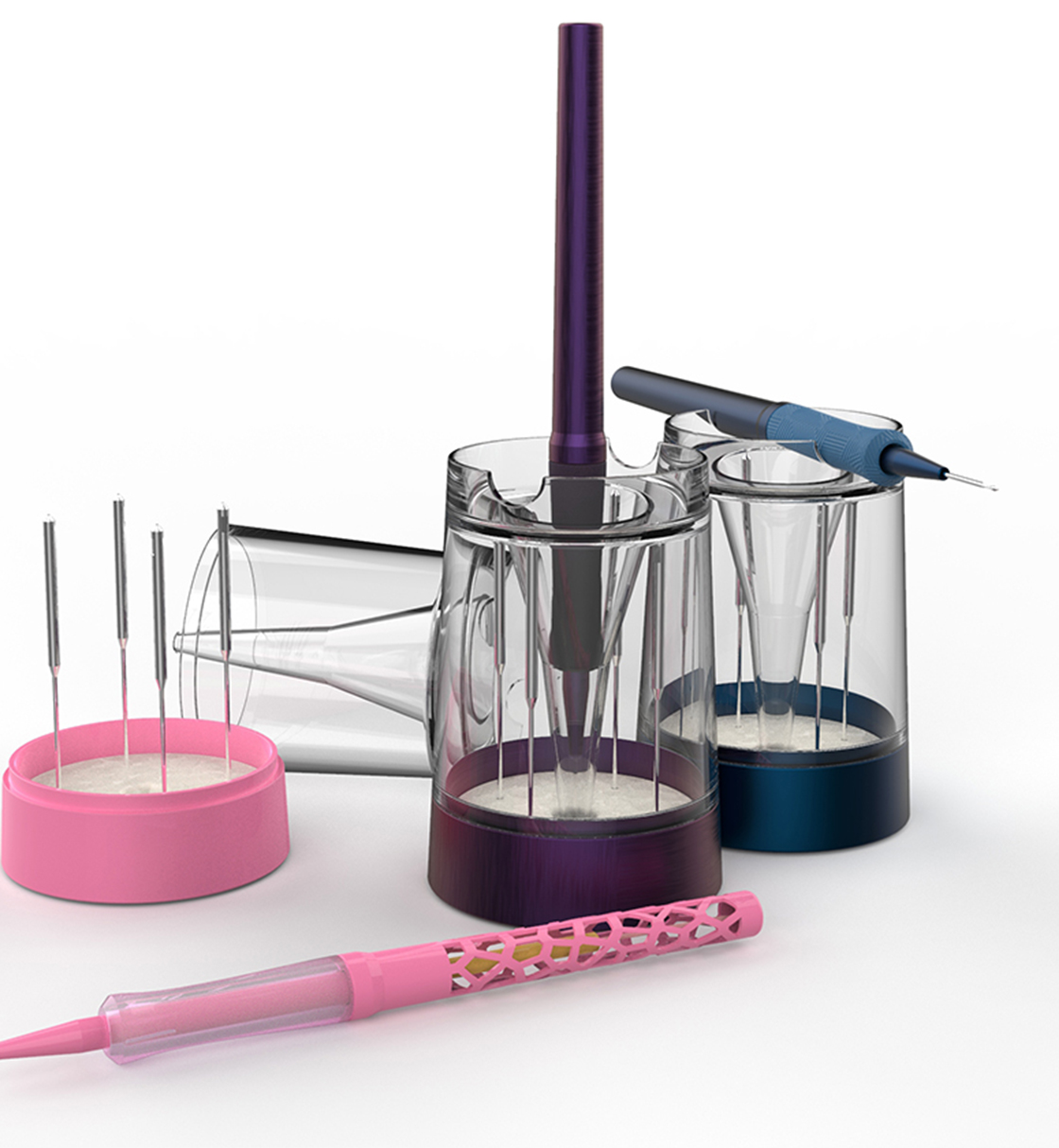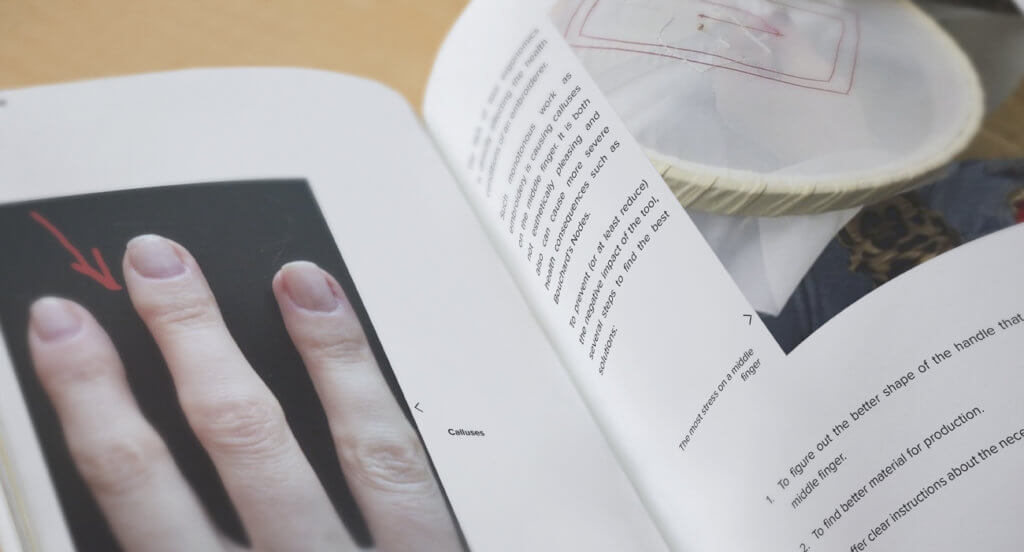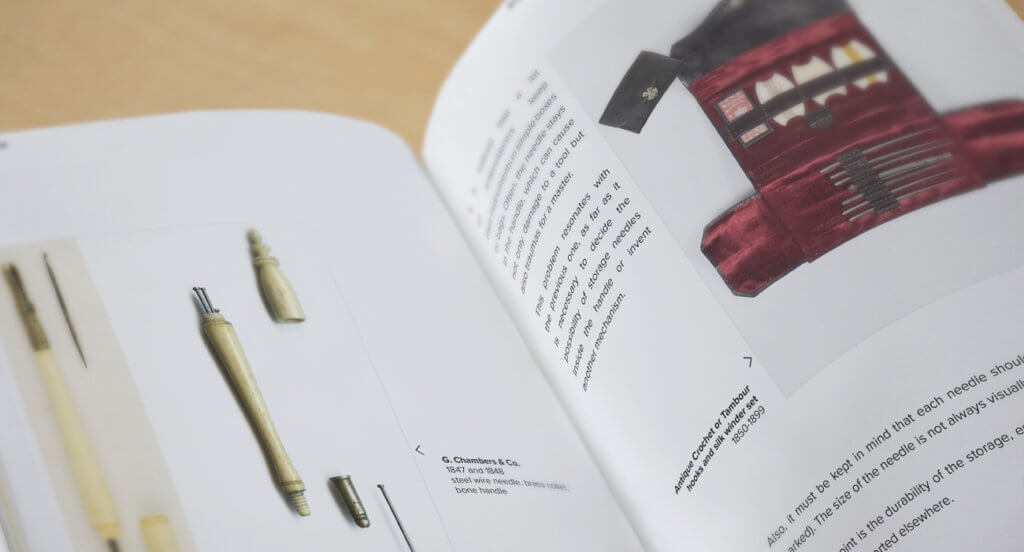Alternative approaches to design and manufacturing of Lunéville hook
Project Details
Year:
2020
School:
Raffles University
Level:
Product Design L6
Tags:
Project Description
Today, embroidery is not only considered a hobby but also a significant part of the fashion industry. Prominent fashion houses, as well as aspiring designers, are incorporating various embroidery techniques to create unique garments for their customers.
Luneville embroidery is renowned for its ability to produce stunning embellishments. It comes as no surprise that many individuals choose to study this technique, either in France or at local studios and ateliers. The first lesson for every student is to learn how to use the Luneville crochet. Countless hours of practice are dedicated to achieving a certain level of work quality. However, it is interesting to note that the design of the crochet tool itself has remained unchanged since the 19th century or even earlier.
In a world where the emphasis is not only on visual appeal but also on ergonomics and the comfort of using any tool or device, it is peculiar that the Luneville crochet has not undergone any significant evolution. Therefore, the objective of this brief is to enhance the design of both the embroidery tool and its packaging, making it more responsive to the demands of the 21st century.

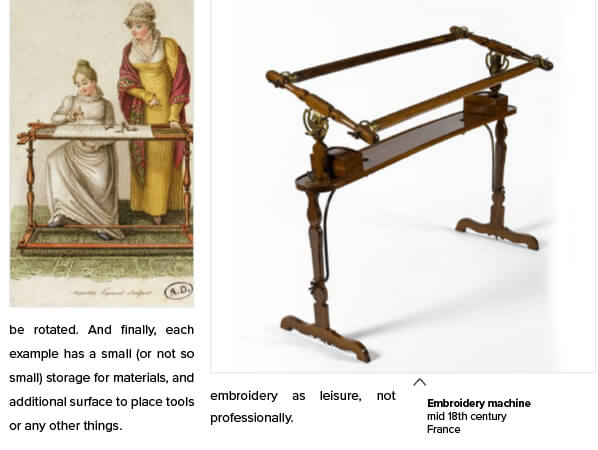
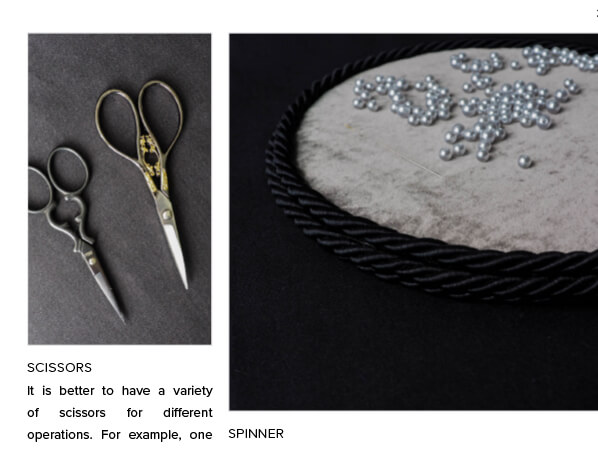

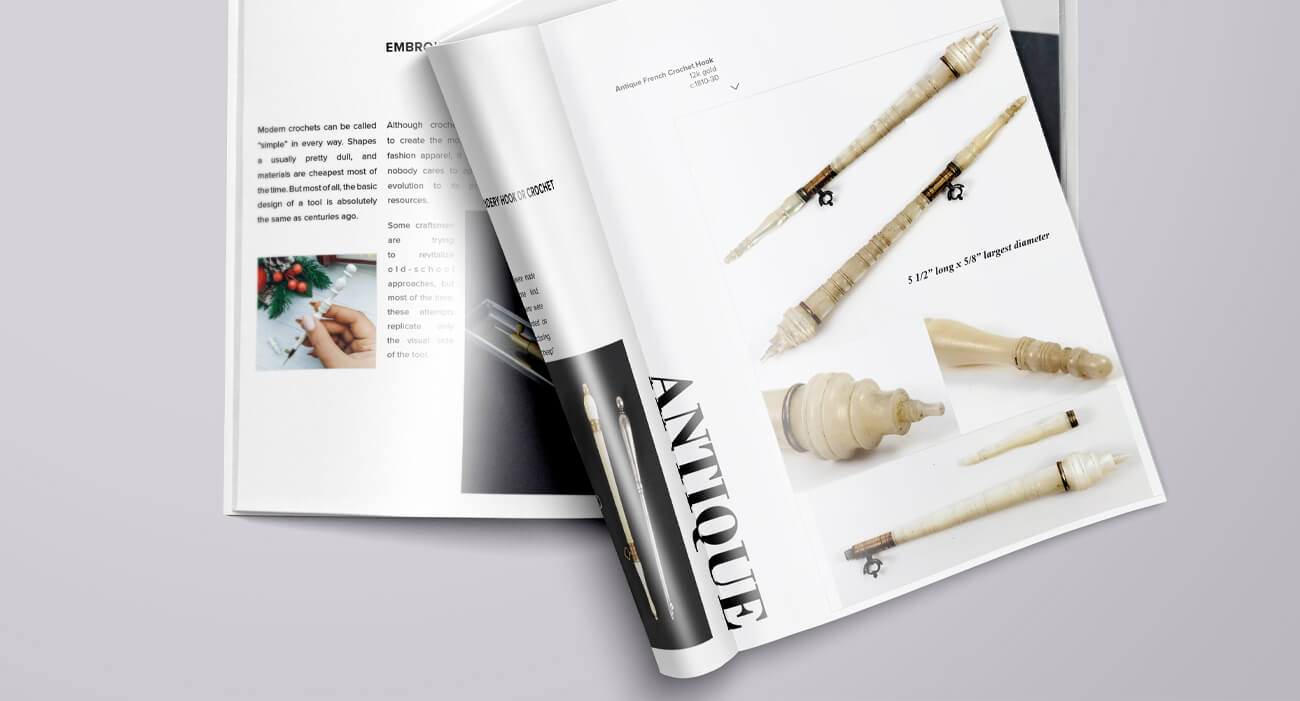
Problem #1
Ergonomics of a handle
The lack of tool ergonomics directly affects an embroiderer’s health conditions. Such monotonous work as embroidery is causing calluses on the middle finger. It is both not esthetically pleasing and also can cause more severe health consequences such as Bouchard’s Nodes.
WHO ARE THE TARGET GROUPS?
Several groups represent the user of this product—first, employees or individuals working as embroiderers for a full-time or creating commissioned work. Second, aspiring individuals mainly study and explore the technique and aim to do it for a living. Finally, those who perceive embroidery as a hobby do not want to be involved in it much. The first two groups seem the most relevant.
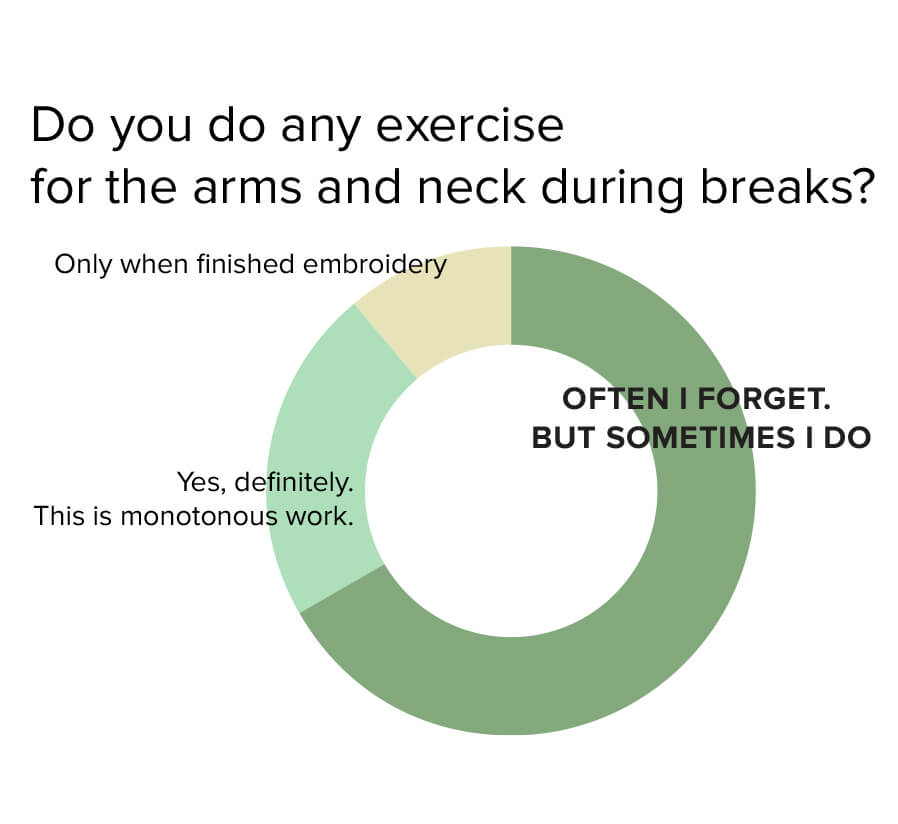
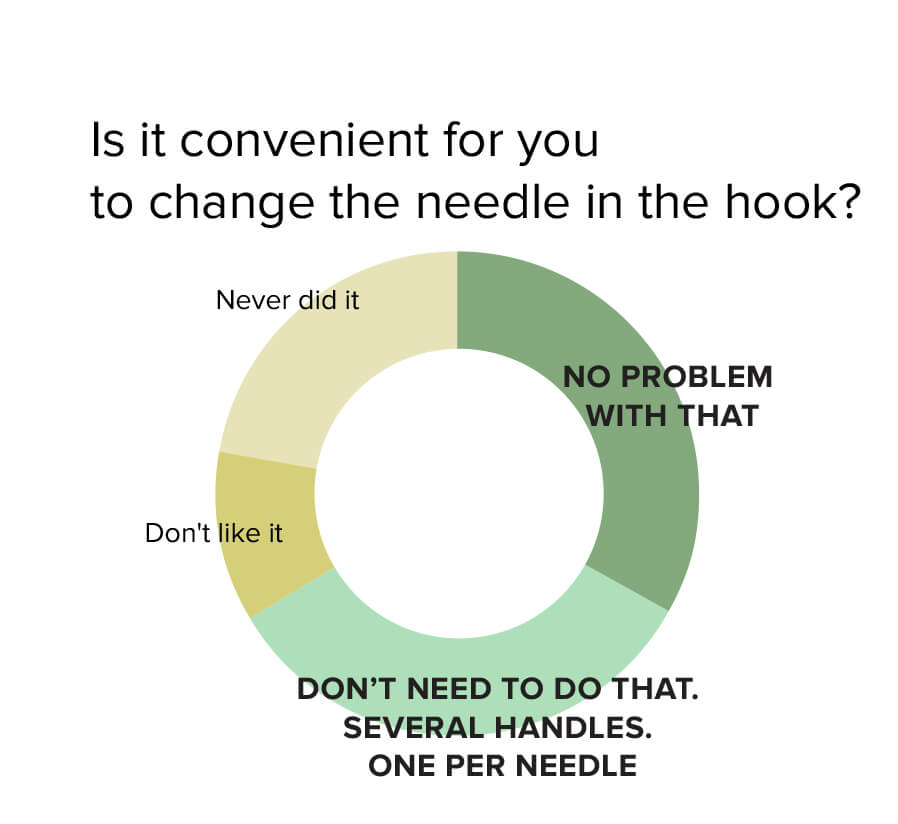
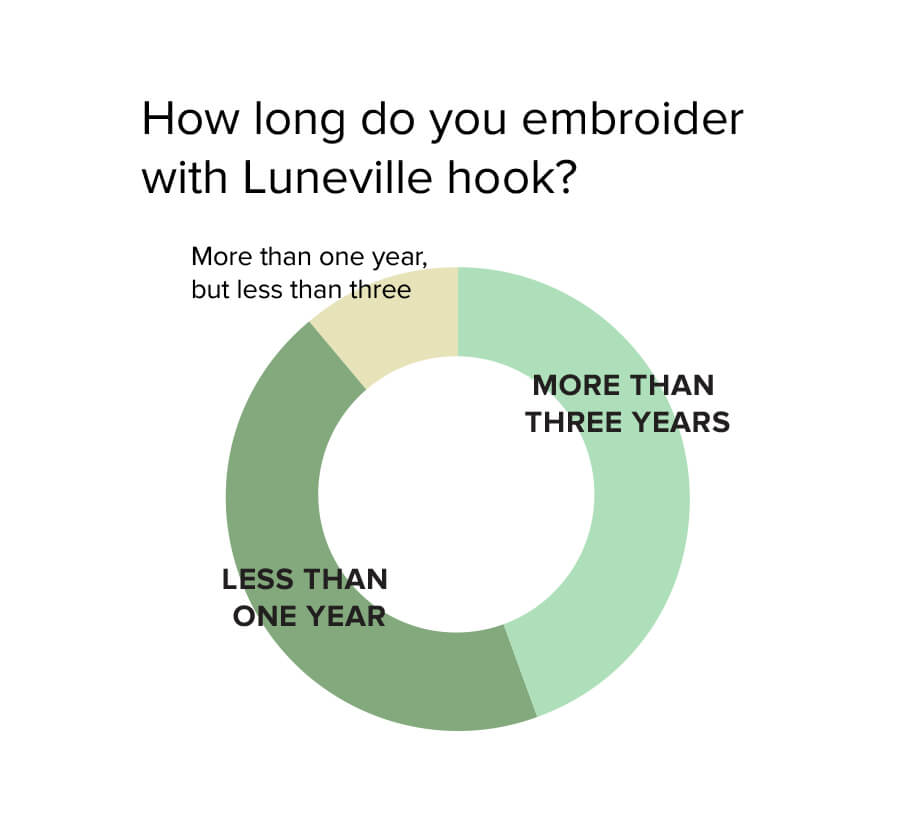


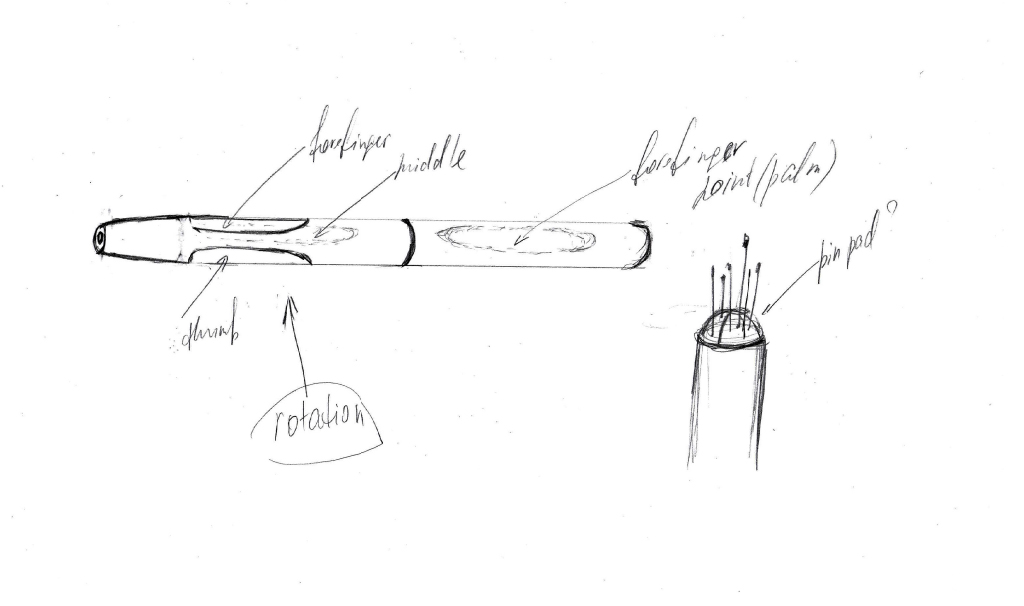
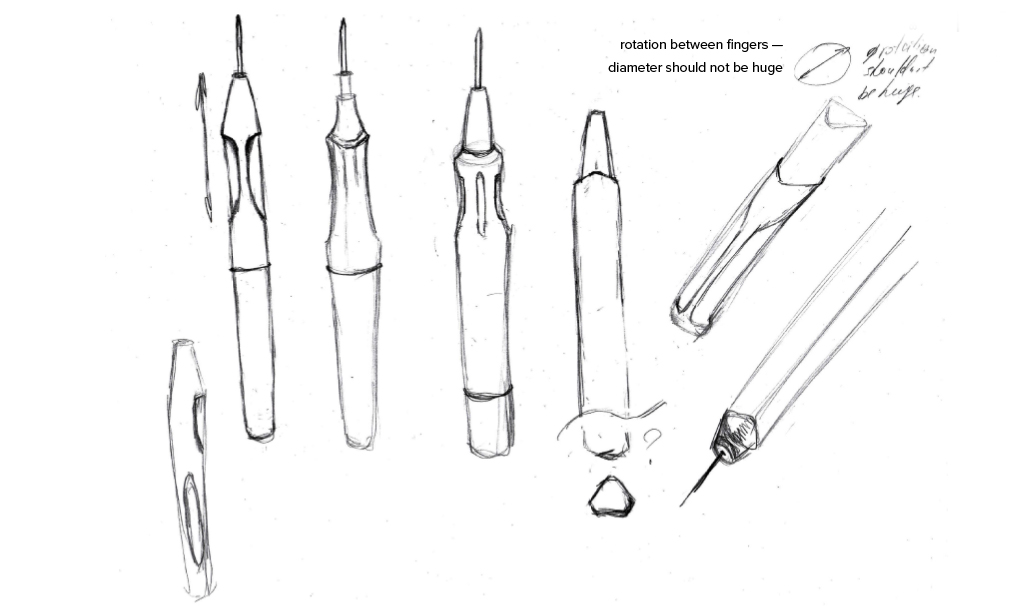
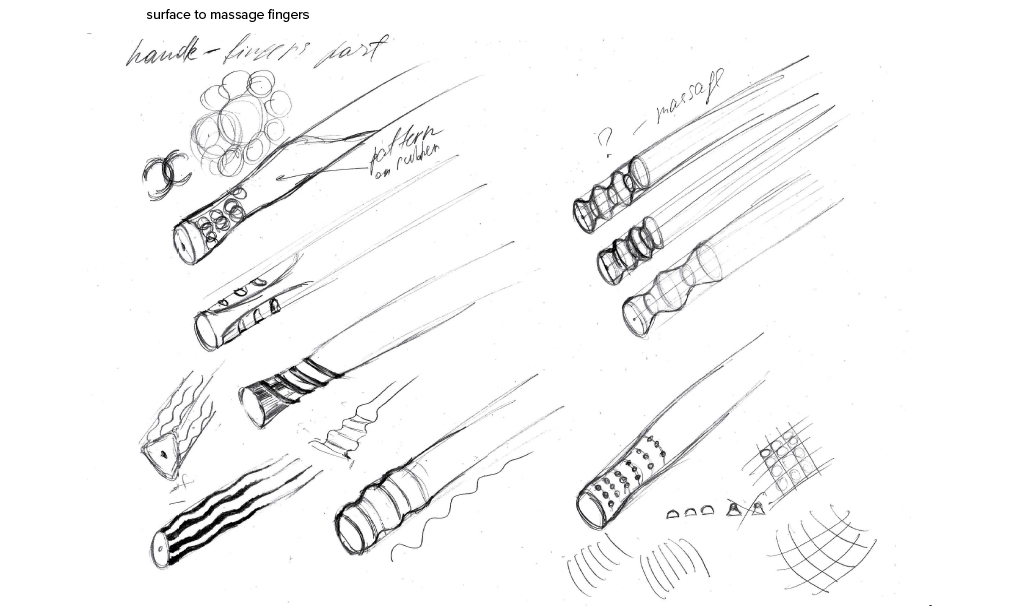
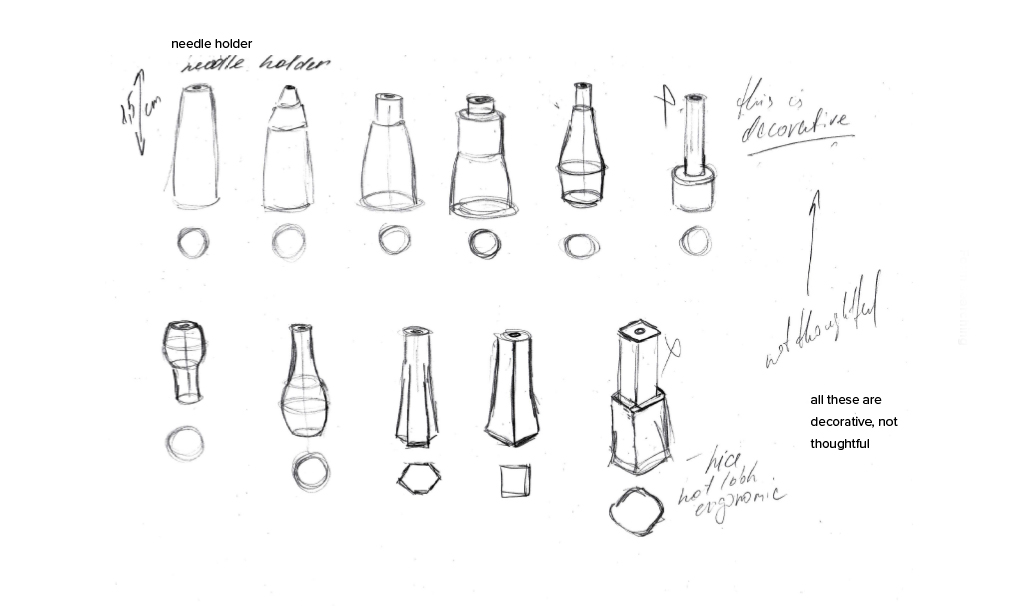
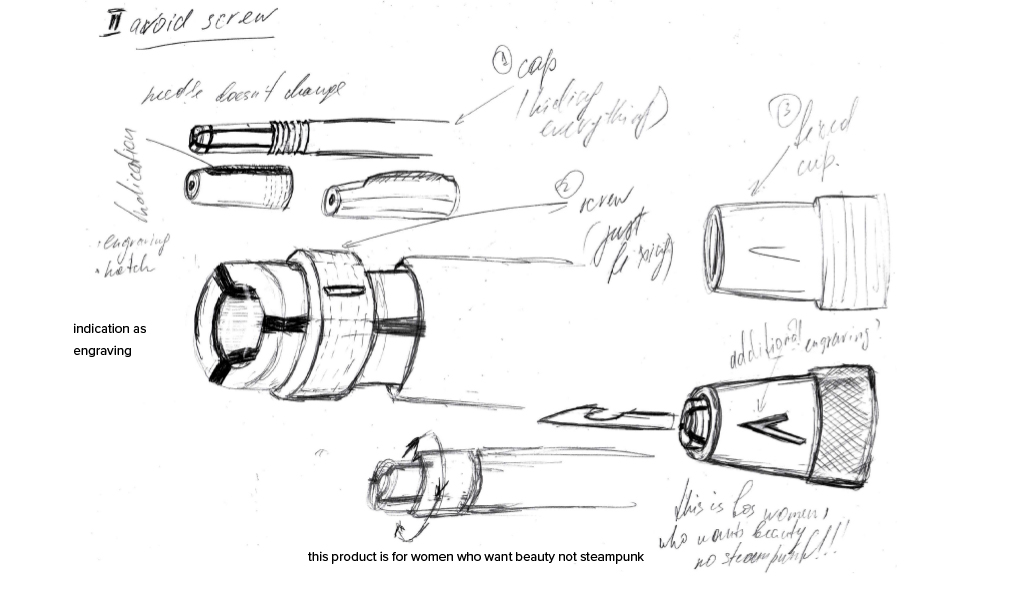
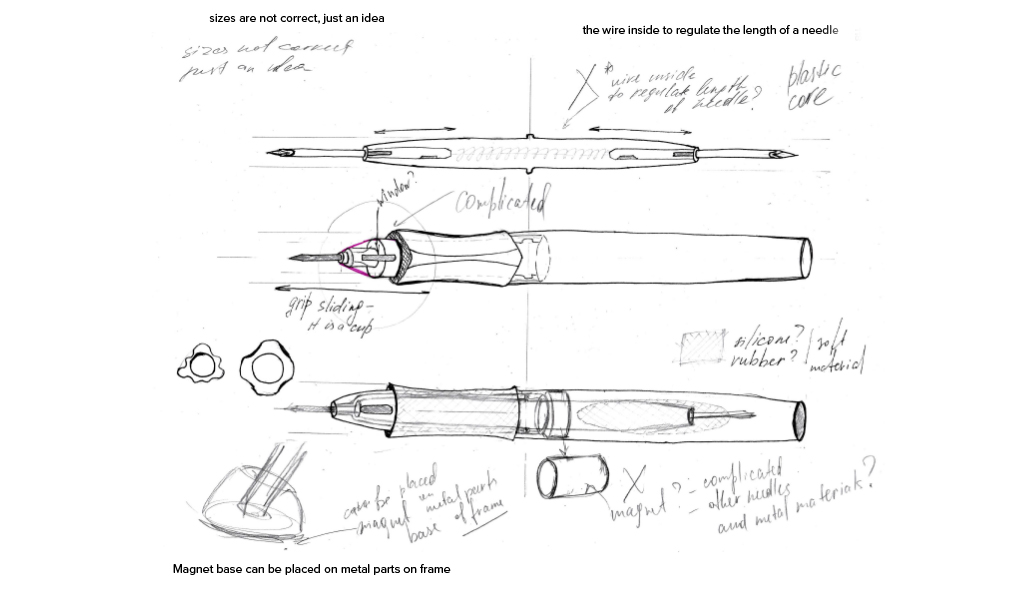
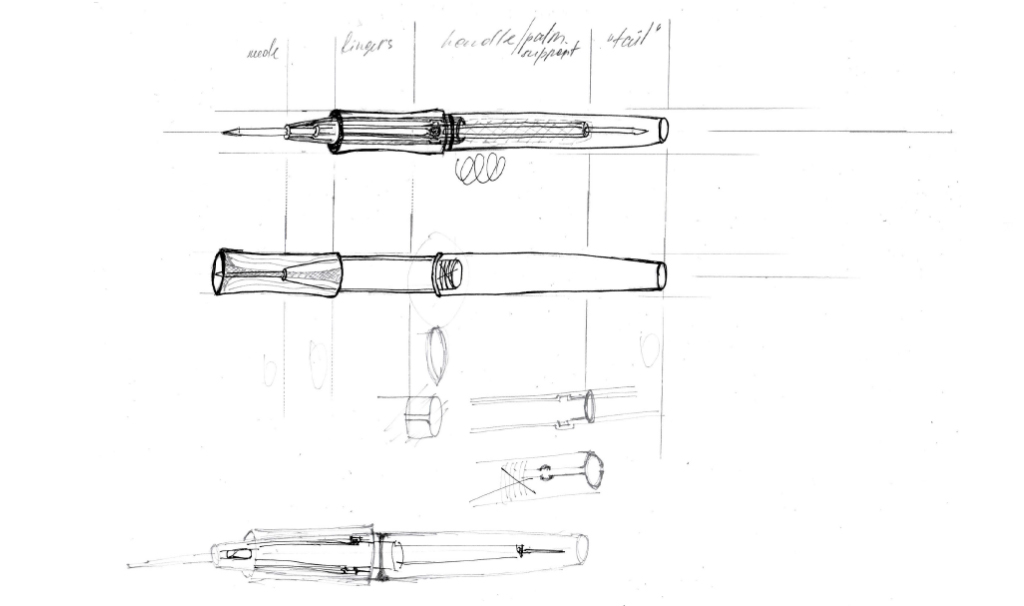
DESIGN & CONSTRUCTION
I tried to assemble all ideas I had gained during sketching into one product at this stage. It was essential to figure out the precise dimensions that were not so clear previously.
Also, it becomes clear that additional decorations that I planned while sketching is not the best idea, as far as the design looks relatively modern and minimalistic. So “less is more” became an unofficial slogan for this tool.
